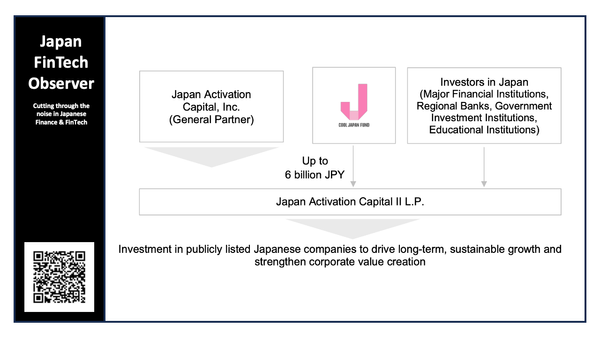CBDCs from a Japanese Legal Perspective

Waseda University released the fifth episode of its English language podcast series “Rigorous Research, Real Impact”, covering “Central Bank Digital Currencies from a Japanese Legal Perspective”.
In the following, we have summarized Professor Takashi Kubota's insights on Central Bank Digital Currencies (CBDCs), focusing on the legal implications and challenges for Japan. Professor Kubota, a legal expert with experience at the Bank of Japan and various international institutions, offers a detailed perspective on the current state and future of digital currencies, drawing on his extensive research and practical knowledge.
What are CBDCs and How Do They Differ from Other Digital Currencies?
CBDCs are digital versions of fiat currencies, issued and regulated by central banks. They differ from cryptocurrencies like Bitcoin, which are privately issued and decentralized, and stablecoins, which are privately issued but pegged to a fiat currency or other asset. The key distinction lies in the issuing authority and the level of centralization. CBDCs leverage the existing centralized financial system, offering stability, control, and regulatory oversight, while cryptocurrencies prioritize decentralization and user autonomy.
Why Consider CBDCs? The Potential Benefits and Challenges
For wholesale transactions, CBDCs offer numerous advantages: increased speed and reduced fees for international transfers, enhanced security through blockchain or similar technologies, improved monetary policy effectiveness, prevention of money laundering and tax evasion, and protection of monetary sovereignty. For retail transactions, the benefits are less pronounced in developed countries like Japan, where private digital payment systems are already well-established. However, CBDCs could still enhance financial inclusion, particularly in countries with limited access to traditional banking services. Challenges include cybersecurity risks, privacy concerns, and the digital literacy gap among certain demographics.
Japan's CBDC Landscape: Current Status and Legal Considerations
Japan is currently in the pilot phase of CBDC exploration, focusing on technical and operational feasibility. While no formal launch date has been set, the Bank of Japan (BOJ) is actively researching and engaging with stakeholders through the CBDC Forum. Legal adaptations are under discussion, including amending the Bank of Japan Act to recognize CBDC as legal tender, updating the penal code to address counterfeiting, and clarifying the civil code to protect CBDC as proprietary rights in insolvency proceedings.
Japan's Approach to Cryptocurrency Regulation
Japan permits the free trading of cryptocurrencies but has implemented regulations for their healthy development. While lacking a transactional legal definition for digital currencies, Japan's Payment Services Act (PSA) regulates crypto asset and stablecoin exchanges, requiring registration with the Financial Services Agency (FSA) and adherence to anti-money laundering measures like the "travel rule."
Addressing Public Awareness and Building Trust: Crucial Steps for CBDC Adoption
Public awareness of CBDCs in Japan remains low, with only a small percentage understanding the concept. Reasons for this include the slower adoption of digital payments compared to other nations, limited public relations efforts, and the complexity of the topic. To improve awareness, Professor Kubota suggests public awareness campaigns, consumer pilots, financial literacy programs, and public consultations. Learning from other countries' experiences with public consultations, particularly the UK, US, and New Zealand, is crucial. Addressing misconceptions, such as the fear of cash abolition, is also essential.
CBDC and Cash: Coexistence, Not Conflict
Cash retains social and psychological importance beyond its economic function, making its complete abolition unlikely. Even in highly digitized societies like Sweden, cash still plays a role. Therefore, CBDCs are likely to complement, rather than replace, cash.
Building Public Trust: Transparency, Engagement, and Security are Key
Transparency in the BOJ's decision-making process, public engagement through consultations and pilot programs, and addressing privacy and security concerns are vital for building public trust. Data protection must comply with existing laws, and robust cybersecurity measures, including quantum-resistant cryptography, are crucial in the face of evolving technological threats.
Learning from China's Experience: Incentives and Integration are Key
Despite extensive efforts, China's digital renminbi adoption has been slower than expected, highlighting the need for strong incentives, integration with existing payment systems, and addressing privacy and security concerns. Japan can learn from these lessons to ensure wider adoption of its own CBDC.
Balancing Central Bank Independence and Monetary Sovereignty
Maintaining monetary sovereignty requires coordination between government policy and central bank monetary policy. While the BOJ is granted independence, transparency and communication with the government are crucial. International cooperation and legal frameworks, like the BIS project "Agora," are necessary to protect monetary sovereignty in the context of cross-border CBDC transactions. The development of international norms enforced through international courts is also crucial.
Legal Processes in Japan: Cabinet Legislation vs. Diet Member Legislation
Cabinet legislation, which involves extensive public and inter-agency consultations, is preferred for large-scale policies like CBDCs. This approach ensures broader input and coordination compared to legislation initiated by individual diet members.
Addressing Privacy and Security Concerns: A Multi-Layered Approach
A two-tier system where the BOJ issues CBDCs to private banks, who then distribute them to the public, can mitigate some privacy risks. Minimizing sensitive data storage and adhering to data protection laws are also crucial. Cybersecurity requires active engagement with private sector expertise, aligning with international principles, and implementing robust security protocols.
Global vs. Country-Specific Frameworks: A Hybrid Approach is Ideal
A hybrid approach balancing international collaboration with national customization is likely the most effective path for CBDC development. This allows for global interoperability while addressing specific national needs and preserving monetary independence.
The Future of Monetary Transactions: Potential Impact of CBDCs
Professor Kubota outlines several potential impacts of widespread CBDC adoption: altered commerce through instantaneous settlements and programmable money, a weakening of US dollar hegemony and a shift towards a multipolar currency system, and the need for new international laws and regulations to govern cross-border transactions.
Professor Kubota's Academic Journey at Waseda University
Professor Kubota reflects on the benefits of Waseda's location, research facilities, and collaborative environment. His interdisciplinary approach, incorporating law, political science, economics, and cryptography, and his engagement with experts and international organizations have enriched his research and contributed to the global discussion on CBDCs.
Conclusion
Professor Kubota's insights offer a comprehensive overview of the complex legal and practical considerations surrounding CBDCs, particularly from a Japanese perspective. Balancing innovation with privacy, security, and public trust is crucial for successful implementation. As countries navigate this evolving landscape, international cooperation and robust legal frameworks will be essential for shaping the future of money and global finance.
Please follow us to read more about Finance & FinTech in Japan, like hundreds of readers do every day. We invite you to also register for our short weekly digest, the “Japan FinTech Observer”, on LinkedIn, or directly here on the platform.
We also provide a daily short-form Japan FinTech Observer news podcast, available via its Podcast Page. Our global Finance & FinTech Podcast, “eXponential Finance” is available through its own LinkedIn newsletter, or via its Podcast Page.
Should you live in Tokyo, or just pass through, please also join our meetup. In any case, our YouTube channel and LinkedIn page are there for you as well.




